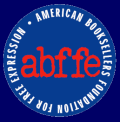- Categories:
ABFFE Sees Problems With New Law Banning “Crush” Videos
Last week, President Barack Obama signed into law a new ban on the sale of animal “crush” videos, which replaces a 1999 law struck down by U.S. Supreme Court in April as a violation of the First Amendment. The new law applies to a narrower range of material, but it has raised concerns for the American Booksellers Foundation for Free Expression (ABFFE) and other free speech advocates.
“Booksellers are unlikely to carry any material that runs afoul of the law, but it could still cause free speech problems,” said ABFFE President Chris Finan.
In July 2009, ABFFE joined other media groups in filing an amicus brief in the Supreme Court case that led to the old law being struck down because its ban on the depiction of animal cruelty was so sweeping it could have led to prosecutions of booksellers for selling hunting and fishing magazines or Ernest Hemingway’s Death in the Afternoon. The court voted 8-1 to invalidate the law.
The new law bans the distribution of images of the intentional inflicting of actual harm on animals if they meet the legal test for obscenity. Under federal law, obscene material must depict a specific sexual act that appeals to a prurient interest in sex; must be patently offensive to community standards, and lack serious literary, artistic, political or scientific value. In addition, the law exempts depictions of hunting, fishing and trapping, normal veterinary or agricultural husbandry practices, and the slaughter of animals for food.
ABFFE said that, while it doesn’t oppose the effort to outlaw crush videos, “it is concerned by the application of obscenity law to depictions of violence, fearing that it could erode the clear line between hardcore sexual material that can be banned and material with violent content that may not be restricted. That clear line allows retailers and others to readily determine what material they can legally sell. Without it, there is a danger that the fear of prosecution will have a chilling effect on the sale of constitutionally protected works.”


